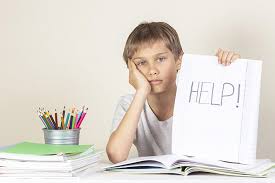
Dyslexia is a common learning difference that affects how children process written and spoken language. While it’s typically diagnosed in school-aged children, some early signs can be observed in preschoolers. Identifying these signs early can lead to early intervention, which can make a significant difference in a child’s academic success. Here are some signs to look out for in preschool-aged children.
1. Delayed Speech Development
Preschoolers with dyslexia may show delays in speaking compared to their peers. They may struggle with pronouncing words correctly, have difficulty remembering the correct names for things, or mix up syllables when trying to say words. This is not just a phase, but a potential sign that they are having trouble processing language.
2. Difficulty Rhyming and Playing with Sounds
Rhyming and playing with sounds is an important precursor to reading skills. If a preschooler struggles to recognize rhyming words or has trouble playing rhyming games, it could be an early indicator of dyslexia. They may also find it challenging to break down words into their individual sounds (phonemic awareness), a skill critical for reading.
3. Trouble Following Directions
Children with dyslexia might have difficulty following multi-step directions. While this can sometimes be a sign of age-related developmental stages, preschoolers with dyslexia may often need directions repeated or simplified. They might also have trouble remembering the order of events or steps in a task.
4. Difficulty with letter and Number Recognition
Preschoolers with dyslexia often have trouble recognizing letters and numbers, especially when it comes to differentiating similarly shaped letters like "b" and "d" or "p" and "q." They may also struggle with matching the sounds of letters to their written form, which is an essential skill for reading.
5. Poor Memory for Sequences and Names
Preschoolers with dyslexia may have a hard time remembering the sequence of events, such as the days of the week or the order of the alphabet. They may also forget names of familiar people or objects.
If you notice these signs, it's important to consult with a pediatrician or specialist for further evaluation. Early identification and intervention can provide the support needed for children with dyslexia to thrive in their learning journey.




 click and follow Indiaherald WhatsApp channel
click and follow Indiaherald WhatsApp channel